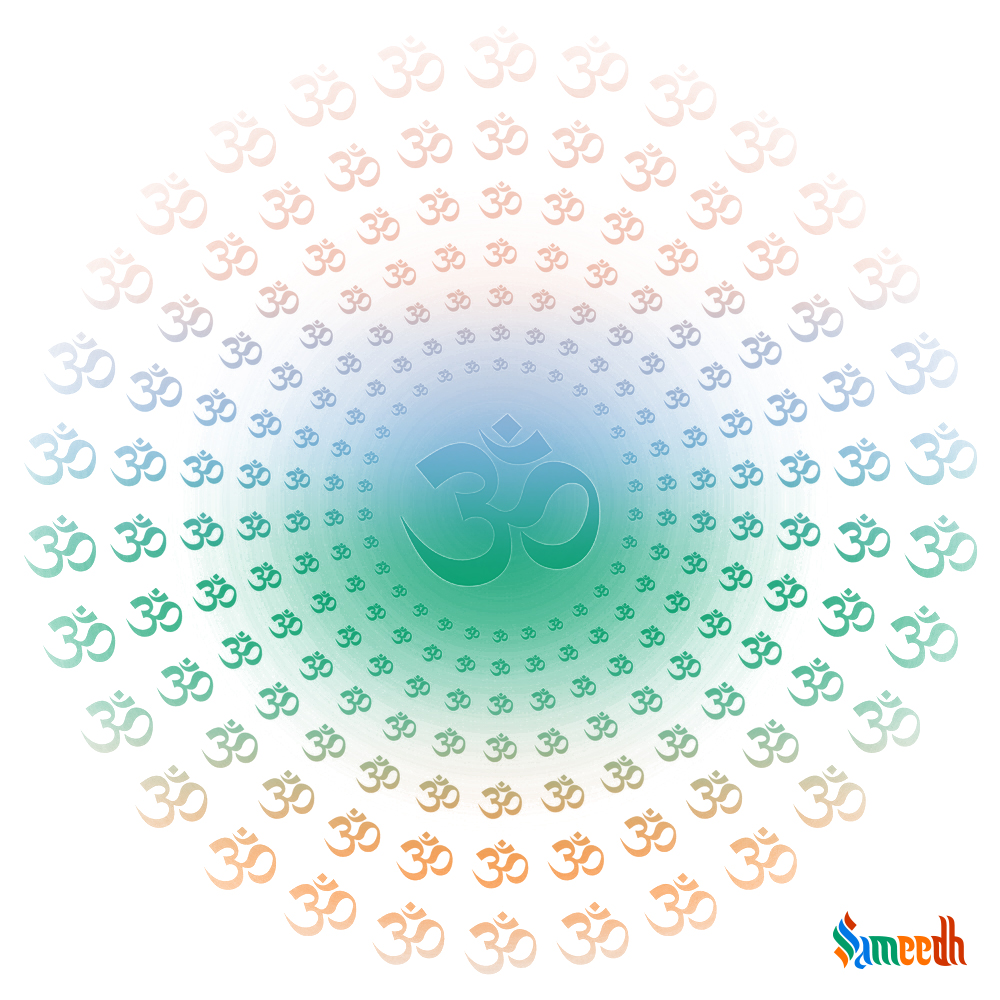The origin and significance of the sacred symbol of ॐ

Om is popularly known to be the divine sound from which originated the entire Universe, according to Hinduism. It is a sacred Sanskrit word which has its roots in ancient Vedas, Hindu religious texts. It is also believed to be the cosmic sound of the Universe chanted during meditative practices to reach greater states of consciousness. Om holds essential relevance in Buddhism, Sikhism and Jainism as well.
Origination from Hinduism
The syllable Om or Aum consists of 3 letters signifying the three prime gods of Hinduism or Trimurti, Brahma, Vishnu and Shiv. Which also symbolises Om as the ultimate mantra behind creation, preservation and destruction. The belief that there existed nothing before the Om and the Universe was built from its vibrations makes it a holy sound. Om is used at the beginning of mantras and is even the starting and finishing words of chapters in Hindu scriptures such as Puranas, Vedas and Upanishads.
Sound of “A” is the beginning of letters and also the seed of initiation, the very inception of the creation. The 3 letters also denote the 3 gender variations of the soul, Masculine, Feminine and Neuter. Also mentioned in the Gayatri Mantra, the three states of the world; Bhur, Bhuva, Svah.
Spiritually, different sounds are responsible for spreading different reverberations across the body. “A” sends vibrations right from slightly below the navel throughout the body. This abdominal region contains a crucial Nadi, spiritual energy veins of the body. Not only is this abdominal region responsible for formation, it is from where the umbilical cord is attached to the newborn too, again depicting birth, genesis.
ॐ नमः शिवाय
Om Namah Shivay
By chanting this mantra, one praises and greets the auspicious Shiv by commencing with Om. It is a way of connecting with the supreme vibrations that created existence through lord Shiv.
Scientific approach
Be it the English Alphabets or Sanskrit letters, the very first one is the sound of “A”.
The phonetics of “A”, “U” and “M” are the only three sounds possible to create even without the tongue. This in itself deems Om, an amalgamation of A, U and M, to be a superior sound. As it has been known through Science that sound vibrations radiate energy, the very core of atoms, molecules and elements. Furthermore, energy can neither be created nor destroyed, it simply gets transformed from one state to another. Science supports the theory that the emission of vibrations from the sound of these three special letters must’ve generated the energy to create the present Universe.
The power of these three sounds can also be understood by the impact they have on basic biology. Living beings react differently to various sounds as they evoke a wide range of emotions. Some soothing sounds put the body at ease and increase release of happy, calming hormones. Whereas, certain loud high pitched sounds can send signals of tension in the body and lead to secretion of stressful hormones. Together, these three cardinal sounds of Om, activate the entire energy body, opening it for higher states of consciousness and mindfulness. Which is why in Yoga and other meditative practices too, this sound is associated with awakening of the body.
The Symbol of ॐ
This holy symbol is divided into three curves and a crescent shape or semicircular line with a dot in the middle. Mystically, the very shape of Om too contains three parts similar to the letters.
The lower curve is the conscious state of the mind, with total awareness. Your experiences through all five senses, your emotions, everything is encapsulated by this state of awakeness.
The upper, smaller curve is the unconscious state, engulfed by deep sleep and no recognition or awareness of the mental, physical and emotional happenings.
The middle outer curve is a balanced state of dreaming, the subconscious between extreme stages of awareness.
The dot or bindu is known as the fourth state of consciousness or spiritual enlightenment.
The crescent shape separating the three curves from the dot is called Maya or illusion of the materialistic world. Figuratively, it is what keeps one from attaining the absolute peaceful state of the highest consciousness. With meditation and mantra chanting, it is believed that one can reach the dot through stages of awakening.